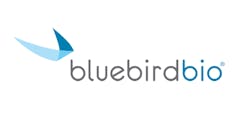Gene and Cell Therapy Manufacturing Facility Opens in North Carolina
bluebird bio, Inc's first wholly owned manufacturing facility opened in Durham, N.C. on March 22.
The company, which is based in Cambridge, Mass., is researching cerebral adrenoleukodystrophy, sickle cell disease, transfusion-dependent β-thalassemia and multiple myeloma using three gene therapy technologies: gene addition, cell therapy and (megaTAL-enabled) gene editing.
The new facility will produce lentiviral vector for the company’s investigational gene and cell therapies, including bb2121 and bb21217 for the treatment of multiple myeloma and potentially LentiGlobin for the treatment of transfusion-dependent β-thalassemia (TDT) and sickle cell disease.
Currently, bluebird employs approximately 50 scientists, engineers, manufacturing and operations personnel at the facility and is on track to grow to approximately 70 employees by the end of 2019.
“At bluebird bio, we view every aspect of our path to helping patients as both a privilege and a responsibility," said Nick Leschly, chief executive. "This includes the expertise that we’ve poured into the construction and operation of our manufacturing facility because it is a crucial step toward our mission of bringing a new generation of treatments to people living with severe genetic diseases and cancer..”
bluebird bio purchased the facility in November 2017. Once completed, the company will have invested more than $80 million building a world class site equipped with multiple manufacturing suites capable of producing lentiviral vector (LVV). The facility also includes warehouse and quality control testing laboratories. The facility construction is substantially complete and equipment qualification is underway.
Initially, bluebird bio expects the facility to produce clinical and commercial supply of lentiviral vector, which is a critical component of the company’s gene and cell therapies. The facility is large enough to accommodate significant future expansion, including the possibility of manufacturing commercial drug product.
The goal of gene therapy is to change or replace faulty genes with functional ones in order to prevent, treat or cure a disease. Vectors are selected parts of viruses that have been genetically modified so they can deliver new genes into cells without causing an infectious disease. Prior to gene therapy treatment, copies of functional genes are added to a vector — the delivery system — in a laboratory setting. The vector, with copies of the functional gene, is added to blood stem cells collected from the patient. The cells that now have functional copies of the gene are referred to as gene-modified cells.
In addition to the Durham facility, bluebird bio also has multi-year agreements with three manufacturing partners in the United States and Europe: Brammer Bio (Cambridge, Mass.), Novasep (Gosselies, Belgium) and MilliporeSigma, the Life Science business of Merck KGaA(Carlsbad, Calif.). Each of these partners is collaborating with bluebird bio on production of lentiviral vector across all programs. bluebird bio also partners with Lonza (Houston, Texas) and apceth Biopharma (Munich, Germany) to produce drug product for Lenti-D and LentiGlobin.
bluebird will receive an Economic Development Award from NCBiotech upon meeting job creation targets in North Carolina and will also receive life-sciences-specific employee training support through the North Carolina Community College System’s Customized Training Program.
About the Author
IW Staff
Find contact information for the IndustryWeek staff: Contact IndustryWeek
